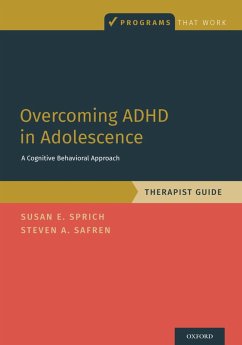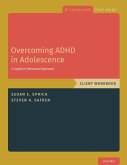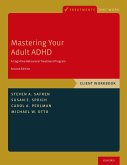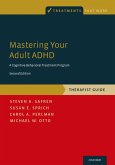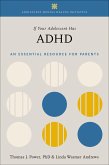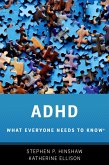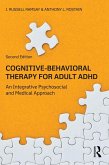Overcoming ADHD in Adolescence: A Cognitive Behavioral Approach - Therapist Guide presents a manualized psychosocial intervention designed to help adolescent clients learn to manage and cope with their ADHD symptoms. Designed for use by therapists familiar with cognitive behavioral therapy (CBT) and/or structured psychotherapeutic approaches, and meant to be used in conjunction with the complementary Workbook for clients, the Therapist Guide features core modules on organization and planning, reducing distractibility, and adaptive thinking, as well as an optional module on reducing procrastination. The emphasis is primarily on teaching the adolescent how to learn and use skills to combat ADHD and function independently. The book offers guidance on including parents in the treatment-inviting a parent or parents in at the end of sessions, involving parents in goal setting, and optional coaching sessions without the adolescent present. Both this Therapist Guide and the companion Workbook for clients also offer a discussion of how to incorporate technology into the treatment, as well as "signposts of change" sections in each chapter. The Therapist Guide concludes with a discussion of how to help the client maintain the gains that he or she has made in treatment. The books are complete with worksheets and forms as well as a link to an online assessment measure that can be used repeatedly to gauge progress in treatment.
Dieser Download kann aus rechtlichen Gründen nur mit Rechnungsadresse in A, B, BG, CY, CZ, D, DK, EW, E, FIN, F, GR, HR, H, IRL, I, LT, L, LR, M, NL, PL, P, R, S, SLO, SK ausgeliefert werden.

